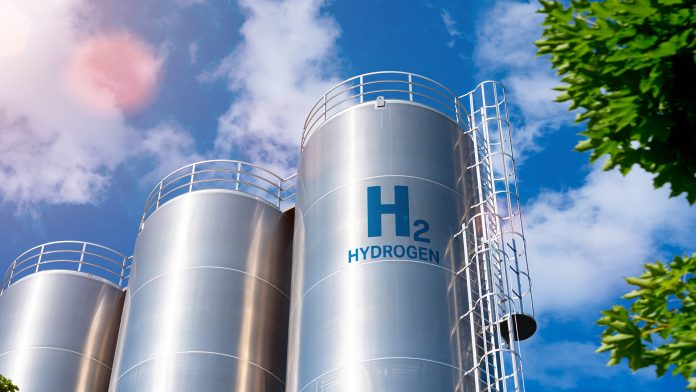Felicia Mester, Director for Public Affairs at Hydrogen Europe, discusses how the association is working with other major organisations, both in Europe and globally, to accelerate the hydrogen economy.

The direction of Europe’s hydrogen infrastructure has been significantly overhauled in recent years. In 2020, the European Union adopted a hydrogen strategy, outlining a vision for the creation of a European hydrogen ecosystem from research and innovation to scale up production and infrastructure to an international dimension. The strategy set out 20 action points to achieve a climate-neutral Europe, which were implemented and delivered by the first quarter of 2022. Developments in renewable hydrogen were further propelled following the publication of the REPowerEU plan in May 2022, brought in to help Europe move away from Russian fossil fuel imports. As part of the REPowerEU plan, the European Commission (EC) outlined a ‘hydrogen accelerator’ concept to scale up the deployment of renewable hydrogen. The ambition of the plan is to produce ten million tonnes and import ten million tonnes of renewable hydrogen in the European Union (EU) by 2030.
Working to accelerate the European hydrogen industry, Hydrogen Europe is the European association representing the interest of the hydrogen industry and its stakeholders and promoting hydrogen as an enabler of a zero-emission society. With more than 400 members, including over 25 EU regions and over 30 national associations, Hydrogen Europe encompasses the entire value chain of the European hydrogen and fuel cell ecosystem. Given recent societal events and their impact on Europe’s hydrogen journey, 2022 has been a major year for Hydrogen Europe and its activities.
The opportunity to really showcase the thoughts, activities, and technological developments of the hydrogen sector was presented in October during the third edition of the European Hydrogen Week, co-organised by the Clean Hydrogen Partnership and its members – the European Commission, Hydrogen Europe, and Hydrogen Europe Research. As part of the programme, Hydrogen Europe held its Flagship Event and Expo, showcasing emerging hydrogen-based solutions, trends, and approaches in the global energy sector.
The Innovation Platform Editor, Georgie Purcell, spoke to Felicia Mester, Senior Policy Advisor at Hydrogen Europe, to hear more about the association’s recent activities to accelerate the European hydrogen industry.
What is Europe’s potential for building the global hydrogen economy?
Europe has huge potential. We are pioneers in terms of regulatory framework. I believe we were the first to ‘walk the talk’, by implementing a climate law to decarbonise the way our economy works by establishing real targets.
Hydrogen development is moving quite fast, however there are doubts around whether hydrogen is just a hype and if Europe will be able to successfully deliver on its ambitions and goals.
It is not a given that we can deliver on the huge challenge that has been put in front of us as an industry. Firstly, there is the sheer size of the current market and the amount of growth that is needed to be performed in a very short period of time. The other question is whether we have what it takes from a raw materials, demand, and technological perspective to deliver the electrolyser capacity and the renewable electricity capacity required. There is also the question of whether we could deploy that into the real industrial base, such as steel manufacturing.
It is not a one-way challenge. Is it practically possible? Yes. Is it realistic? Yes. Is it going to be very challenging? Absolutely. But we hope that, by the end of the year, we will see all the files, in terms of legislative development, finalised. We will have the rules that we need in place and then we can kickstart with the big projects that are waiting to take final investment decision.
What has 2022 looked like for Hydrogen Europe? What have been your main focuses and aims for the year?
The targets themselves were one of the biggest targets for us. One of our main objectives was to ensure that the targets were not diluted and we have been tirelessly fighting to maintain them, both on the industry and transport side. We have been in contact with the European Parliament to make sure we move towards net-zero applications that involve hydrogen and renewable electricity. Until now, we have managed to maintain the ambition of all of our targets on hydrogen.

Our second highest priority is the Additionality Delegated Act, which determines when hydrogen can qualify as renewable when produced using electricity. For us as a sector, it is highly important to have rules in place so we know what we are producing, how we need to produce it, and what the regulations of the process are. Without the rules of the game, it is hard to move forward.
This year has been huge for hydrogen when we look at the amount of projects that we have managed to secure. The European Commission has now announced a Hydrogen Bank, which is something we couldn’t have dreamed of at the beginning of the year. It has been a great year for hydrogen, and I hope some of that is due to the work we do as an association.
How have societal challenges, such as Russia’s invasion of Ukraine and the resulting REPowerEU plan, propelled the demand for hydrogen within the energy system? Has it impacted the direction of your work?
The war in Ukraine has impacted all sectors globally. For the hydrogen economy, it has come with its wins. It is an extremely sad realisation that a terrible event could come with some positive developments for a sustainable industry like ours. However, it is true that the war in Ukraine has propelled discussions on how we shift to other alternatives; the role of alternative gases, such as hydrogen; and replacing current natural gas demand with hydrogen. The REPowerEU plan comes as a natural consequence to these questions, and it sets the ambition of delivering 20 million tonnes of hydrogen by 2030. This has had a huge impact on our industry.
In terms of societal challenges, we are still a nascent sector, and we continue to face a big knowledge gap between people and us as an industry. Building that knowledge base and steering a more constructive dialogue with citizens and trade unions is important. It will be able to address questions including what hydrogen is, its potential applications, and any safety concerns. It is important to talk to people that work in coal- and gas-dominated communities to help them understand how new technologies can transform their expertise and their jobs, alleviating any concerns that their jobs may be displaced.
European Hydrogen Week and the Hydrogen Europe Flagship Expo took place in October. What were the key themes addressed there?
Essentially, what we aimed to do with the conference programme was to discuss where the market is at right now and where we want it to be in ten years’ time. We also focused on switching the goal towards the 20 million tonnes target and asked ourselves:
- How do we get there?
- What terms do we need?
- What do we need for infrastructure development?
- What do we need in terms of certification for proving the origin for consumers in Europe?
- How do we make sure that whatever we import is truly sustainable?
We examined everything that is currently on the table, such as policy developments, market design elements, infrastructure development, and third country engagement. We also raised questions about how we interact and create new strategic energy partnerships.
We live in a globalised world, and so many people ask me why we are talking about imports because surely energy security is about producing everything locally. That is one way of looking at it; however, we live in a world where our economies are highly interlinked. Our supply chains will always be interlinked with that of other countries, so there is no energy or economic independence without sturdy and robust relationships with our economic partners.
What is the overall message you want to convey?
I think one important thing we forget is that right now is a make-or-break moment. Not only for the hydrogen sector, but for the entire planet, for us as a community, for transforming the way that we live and work, and the products we consume and buy. Likewise, it is a make-or-break moment for industries to transform the way that they operate to produce better products and consume more sustainably.
We forget how big of an equilibrium is required to keep all that in check. Again, there is such a big link between society and industry. I think this is the moment when the decisions we take must be future proof. We need to make sure that CO2 is the currency of our decisions, and we need to take that into account when carrying out any kind of policymaking.
There needs to be a reality check in terms of what we do and how we make sure that everything we set in place fosters an industrial base that will deliver for Europeans for decades to come.
Felicia Mester
Senior Policy Advisor
Hydrogen Europe
https://www.linkedin.com/company/hydrogen-europe/
https://www.instagram.com/h2europe/
Please note, this article will also appear in the twelfth edition of our quarterly publication.









